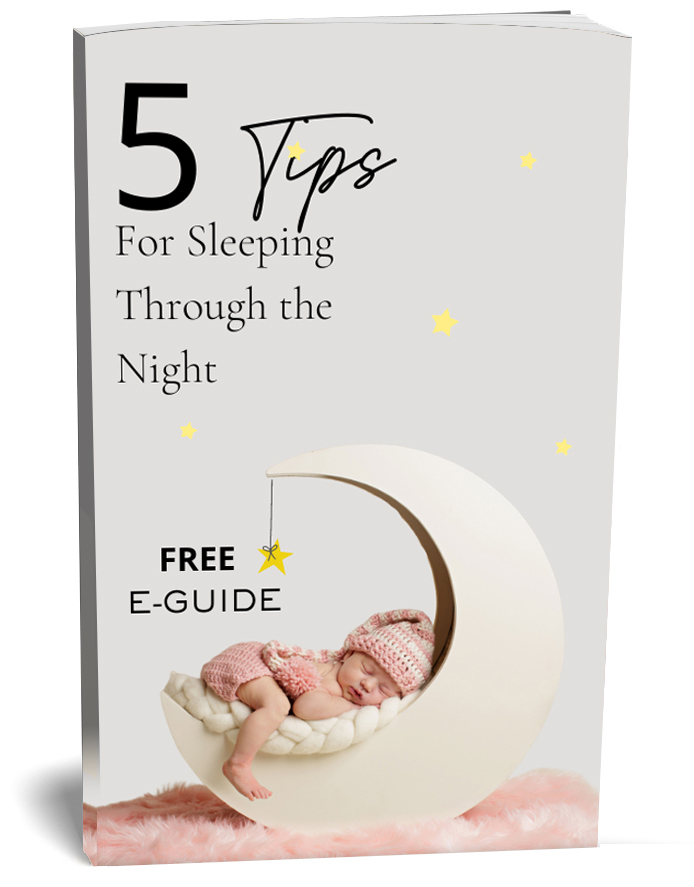Is Your Baby Waking Up Screaming? Here’s How to Wake Up With the Sun Again
Midnight crying can be stressful. But it’s also totally normal. Here are my top tips for teaching independent sleep.
Waking up with the sun feels great. You open your eyes and immediately you feel refreshed. You just got an amazing night of sleep. And as you hear the birds singing to you outside your window, you can’t help but smile.
But let’s be real. A night like that? It feels like an impossible dream right now.
It’s tough when your little one can’t sleep… for both of you. Your baby is still snatching sleep in one- or two-hour bursts, never really resting enough to wake up refreshed.
And your last solid night of sleep? Who even remembers?
Relax. It’s all totally normal. With the right approach, you’ll have your baby sleeping on her own before you know it.
And the best part? You’ll be sleeping like a baby, too.
Everyone needs a nighttime routine
How do you wind down at night?
Lately, I’ve been chilling out and watching The Good Place to relax before bed. Maybe you like to take time for some restorative yoga. Or perhaps a book and a glass of wine is your jam.
Everyone has some sort of bedtime routine. And whatever yours is, it helps you settle in for a great night of sleep.
Your baby is no different. Just like you, she has her own personal ways of getting settled before bedtime.
Especially if she’s a newborn, your baby may want to be nursed or rocked to sleep. But as she gets older, she’s going to find other ways to wind down at night. White noise, the gentle movement of a car, singing, sucking on a pacifier… the possibilities are endless.
Why independent sleep matters so much
But here’s the thing. When your baby’s bedtime rituals depend on you, she can’t fall asleep without your help. She hasn’t learned how to settle down without having you there to rock her, nurse her, or comfort her.
And that means she needs to learn a crucial skill: how to self-soothe.
If your baby still needs to learn how to self-soothe, you probably already know… because late nights are part of your routine.
You know the drill. You’re in bed, sound asleep after a very long day. And then you hear it: cries coming from the next room. Roll over. Check the alarm clock. 12:13 am.
Whenever your baby wakes up, she’s suddenly stressed… she doesn’t know where you are. And she can’t feel comfortable or safe without you.
And you’re not getting the sleep you need. So you’re stressed, too.
Sound familiar?
Here are a few common signs your baby needs help learning to sleep independently.
- She needs nursing, rocking, or bouncing to help her settle down and sleep.
- She wakes up crying or screaming — sometimes several times a night.
- She needs you to reinsert her pacifier repeatedly each night.
- Naps are a struggle. She doesn’t sleep longer than 30 minutes or so.
- She rarely sleeps more than one or two hours at a time, even at night.
- She often seems cranky or fussy from not getting enough sleep.
It’s hard to remember, but self-soothing is a skill. We learn it so early in life that it’s easy to forget. And if your baby is still depending on you to get settled at three or four months, it’s time to help her develop the skills to sleep on her own.
Focus on mastering the basics
If you haven’t nailed down the fundamentals of infant sleep yet, you’ll probably be amazed at how a few simple steps can transform your baby into a peaceful little prince. To help your baby get a better night’s sleep, the right place to start is with the basics.
Create a bedtime routine. Setting up a regular sleep schedule makes things predictable and ensures that your baby knows when sleep is coming. Before bedtime, create a regular routine that you go through together. Maybe it’s taking a bath, reading a book, or listening to some quiet music. Whatever you choose, go for activities that reduce stimulation and help your little one relax.
Separate daytime and nighttime. If your baby frequently wakes up crying at night, she may not be learning to associate nighttime with sleep and daytime with waking activities. Helping her form this association can cut down on midnight crying fits. Anytime your baby is sleeping, keep the room quiet and dark. Just turn on a dim nightlight if you need to check on her. Respond to her as quickly and quietly as you can, then let her get back to sleep on her own.
Put your baby to bed drowsy but awake. “Drowsy but awake” is a simple but powerful method to ensure your child gets practice self-soothing. When you lay your baby down in the crib, make sure she’s calm and ready to settle down on her own, but not yet asleep. By allowing your baby to fall asleep by herself, you’ll give her consistent practice settling down without your help.
Are you part of the problem?
One last thing. We still haven’t tackled the biggest barrier to self-soothing: you.
Almost all babies will learn to self-soothe on their own if left alone to fall asleep in a drowsy, relaxed, awake state.
But what happens next?
There will be tears. You can take that to the bank. Some nights, you’ll lay down your little angel, close the door, and hear crying right away. The question is, what do you do?
Let’s be honest. When you hear your baby crying, it’s only natural to come running and comfort her. That’s your instinct as a parent: to protect your little one.
But if you do that, you’re not teaching her to self-soothe. And you’re not getting any closer to more peaceful nights for yourself, either.
The fact is, even at this early age, your little one needs to start learning to be independent and solve her own problems. What does she learn when she cries and you immediately come running? “This big special person takes care of me when I start crying.” And next time she wakes up feeling antsy, you know what she’ll do.
Now, if you don’t come running? “Damn. That big special person didn’t come for me. What’s up with that? I’ll keep it up and see if that gets her to come… No? … Still no? Hmm. I guess I’ll try something else.” And eventually — maybe after ten or fifteen minutes — she’ll settle in and fall asleep.
High five. Pour yourself a glass of wine. Time for This is Us.
You’ve got this!
You won’t magically turn things around in one night.
But stay consistent, and your little angel will be sleeping soundly… sooner than you ever thought possible.
If you’ve tried these strategies and your baby wakes up screaming on the regular, it might be time for extra support. I’ve helped countless families just like yours get a better night’s sleep. Take a look at my sleep packages to find out more!






















